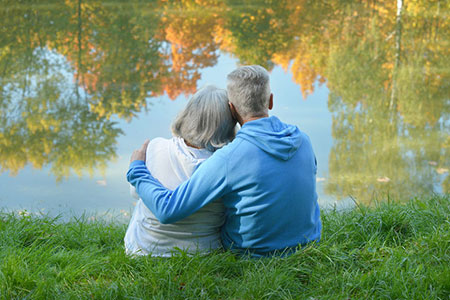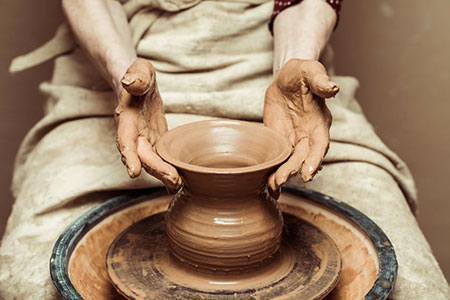bliss
Honor Your Most Magnificent Self
 Taking time to experience the wonder of the final days of summer truly is medicine for the soul. My favorite summer activities include dipping my toes in a nearby lake or ocean, feeling the healing energy of the natural quartz sand against my skin, and finding renewal in the essence of the season.
Taking time to experience the wonder of the final days of summer truly is medicine for the soul. My favorite summer activities include dipping my toes in a nearby lake or ocean, feeling the healing energy of the natural quartz sand against my skin, and finding renewal in the essence of the season.
Too often we move through our days and weeks completely engulfed in work, and the chatter of the bustling world. Our lives tend to be caught up in the motion of the world, with little time for self-care and centering.
Many of us awake in the mornings to the national news that often leaves us drained even before our day begins. We shower, have breakfast, down a cup of coffee, and anxiously show up for our families and our careers.
Many hours later, we return to our homes, where we are met with even more news via network and cable outlets, competing with their own spin on identical breaking stories. We reach for our smart phones or laptops and headlines scroll across our screens. When is enough truly enough?
In light of the endless social and environmental concerns permeating our planet, our species is globally experiencing stress like never before. But surely the Divine Presence within our amazing Universe would not leave us stranded on Planet Earth without the tools to transcend stress and what seems like utter chaos.
What Is Blocking Your Progress?
 Picture yourself driving down a nice country road. There is no traffic to speak of, the sun is shining beautifully in the cloudless sky, and all is right with the world. You have no particular timeline or agenda in mind, this is a rare moment of bliss which you totally intend to take advantage of.
Picture yourself driving down a nice country road. There is no traffic to speak of, the sun is shining beautifully in the cloudless sky, and all is right with the world. You have no particular timeline or agenda in mind, this is a rare moment of bliss which you totally intend to take advantage of.
But, as you come around the next bend in the road, there, out of the blue, appears to be an exceptionally large branch completely blocking the way. What to do now? Well, you have always thought of yourself as a somewhat smart and resourceful soul, so there is no doubt in your mind that you will arrive at a logical and workable conclusion.
After careful examination, you begin to realize this is a little more serious than what you had initially thought, so now alternate plans must be put in place. Out comes the trusted cell phone, to call the nearest towing company. Perhaps they will be able to haul the branch out of the way!
Oh no, you are in a cellular dead zone and there is no signal, so the calling option is out. What next? Well, with a little pushing and prodding, maybe you could clear the path yourself? After an exhausting attempt you quickly realize this is not going to work either. Time out is called for, so you may rally all your brilliant thoughts to reach a viable and successful conclusion.
Then you have an inspired idea. If all else fails, maybe you can navigate around the branch just enough to get free and clear, and continue on your merry way? You try and…well, lo and behold, that worked amazingly well!
Make Precious Memories With Those You Love
 I had the wonderful pleasure of recently reading for a man who had a wonderful, larger-than-life spirit, as well as a wonderful personal story to share about his experience connecting with his dearly departed mother.
I had the wonderful pleasure of recently reading for a man who had a wonderful, larger-than-life spirit, as well as a wonderful personal story to share about his experience connecting with his dearly departed mother.
He told me he is not one to share his personal beliefs or private experiences about spirituality and the paranormal. He was raised to not talk about such things. But more recently he has felt the need to talk about these things, because he is not getting any younger, and his wife of many years may not have much longer to live.
He told me how was getting ready to go to sleep one evening, and while saying his prayers, a very sweet smell of perfume entered the room. It reminded him of his mother. Then a very bright light appeared all around him. It brought with it an immense sense of joy, serenity and inner peace. Something he very much needs at this time.
He just wanted to bask in that feeling forever. Suddenly he no longer cared about anything else in the world, only for that blissful moment to continue. Before he drifted into sleep, he opened his eyes for a moment, and saw his mother standing before him.
Transcending Turbulence And Restoring Peace Within
 One of the most moving metaphors I have ever heard, describes the calm that rests beneath the surface of the ocean. While there may be waves and turbulence on the top, if you dive down deeper, you will come to waters that are more still.
One of the most moving metaphors I have ever heard, describes the calm that rests beneath the surface of the ocean. While there may be waves and turbulence on the top, if you dive down deeper, you will come to waters that are more still.
Similarly, the troubles of life that bring disturbance to the body, mind, and relationship dynamics of the world, occur at levels which are external to the eternal self. By going deeper, peace within can be found.
Spiritual traditions of the world define the self and the soul in varying ways. The ancient Vedic texts, for example, identifies the individual soul as measuring one ten-thousandth the size of the tip of a hair, and states that it is located in the region of the heart, seated beside the Paramatma, or Supreme Soul (God).
In the Vedic tradition, consciousness is recognized as the symptom of the soul, which is carried throughout the body by the blood, as it is circulated by the beating heart. When the heart stops and consciousness leaves the body, it is because the soul has departed.
Lord Krishna further describes in Bhagavad-gita that this atomic soul is never born, and never dies. It is immutable, unchangeable, indestructible, and always aloof from matter and its influences.
These spiritual teachings go on to highlight that the pure eternal soul is one’s real identity – the ‘I’ or ‘me’ felt by each and every living being. In this world, it has become temporarily covered by a subtle body made up of mind, intelligence, and false ego, as well as by the physical body comprised of earth, water, fire, air, and ether. In this state, the modes of material nature act upon it, and one acts out various behaviors compelled by the energies of those coverings. But the soul itself remains untouched and unaffected.
How To Be Patient In Times Of Crisis
 Just about every day, we face some sort of obstacle, delay in communication, or a situation that doesn’t go our way. And in times of an unexpected crisis, our first response is too assume the worst, or panic.
Just about every day, we face some sort of obstacle, delay in communication, or a situation that doesn’t go our way. And in times of an unexpected crisis, our first response is too assume the worst, or panic.
Negative feelings can creep up and overtake the mind, sending us into fits of rage, sadness or disillusionment, due to the lack of patience in surrendering our control and allowing those emotions to pass with total acceptance.
When we become impatient, our entire being is out of balance and the auric energy field becomes muddy and chaotic. Agitation and strain then become the primary motivator, and there is a loss of self-awareness within.
Impatience never makes things happen faster, or better, and the worst way this can manifest is when we try to force an issue, or get a person to instantly say yes, or go along with our vision.
Whenever impatience or uncomfortable feelings arise, it’s vital to make a conscious effort to redirect that negativity and nip it in the bud, so you can stay calm during the toughest times. Here are some strategies to help alleviate impatience when your feeling triggered.
Breathing
Take several deep breaths from your stomach and exhale out the stress, focusing on your third eye as you release your breath. Think of something funny or inspirational so you don’t unleash unnecessary aggression.
Home Is Still Where The Heart Is
 This is a traumatic, stressful time in history for many of us, especially since there is so much confusing news and information to process and assimilate. We can, however, do a number of things during this extremely stressful period to make our lives easier, instead of cowering under the bed until it all blows over. Most importantly, we can choose to face reality with gratitude, courage and fortitude.
This is a traumatic, stressful time in history for many of us, especially since there is so much confusing news and information to process and assimilate. We can, however, do a number of things during this extremely stressful period to make our lives easier, instead of cowering under the bed until it all blows over. Most importantly, we can choose to face reality with gratitude, courage and fortitude.
There should be precautions put into place certainly, but also there should be some joy and happiness, as well as planning for the future. We should be taking advantage of this blissful and happy downtime inside the place where we usually love, hope and live – inside our personal domicile, our home.
Never before have we had such ample opportunity to get to know our loved ones in a more intimate and connected way. Never before have we been reminded so deeply of the many reasons we have to be thankful for. This is a unique time in our lives, during which we can teach our children, as well as each other, that what appears to be a bleak and dire moment can certainly be turned around and changed into one of joy, appreciation and merriment.
Instead of sitting around feeling miserable, many parents have, for example, been contriving makeshift toys, contraptions and activities to help children continue to be happy and carefree, as they should be, whether it be indoors, or in their own backyard.
There are also many adults who are taking advantage of this ‘alone time’ to reconnect, not only with others whom they may have been unintentionally neglecting, but also getting to know and understand themselves on a deeper level.
Sheltering In Gentle Grace
 The subject and substance of grace is near and dear to my heart. Its consistency is gentle and ethereal, but nonetheless a source of grounded strength. I appreciate it as a richly layered, soft, spiritually textured energy, flowing between Heaven and Earth – divine in its origin from God, yet accessible in unlimited ways within, and around us.
The subject and substance of grace is near and dear to my heart. Its consistency is gentle and ethereal, but nonetheless a source of grounded strength. I appreciate it as a richly layered, soft, spiritually textured energy, flowing between Heaven and Earth – divine in its origin from God, yet accessible in unlimited ways within, and around us.
A few years ago, I wrote a book on grace, moving in divine alignment. The words channeled through me, as if being dictated by Grace herself, a feminine goddess personifying the compassionate energy emanating from God as the Supreme Source. Therein, the quality of grace on the hard paths of life revealed itself to me as follows.
When the dance stands still in the dark – outside my comfort zone, in the space of the unknown, in the history of pain, before the next step – I tend to feel neither peaceful, patient, nor poised.
I have grabbed for answers, change, relief, but found none independently within my clutch. So, I envision a fabric of grace, formed when the favor of God becomes interwoven with the sweetness of elegant movement and presence.
Unlike ordinary cloth, the fabric of grace dons a mystical twist. It is a lifeline of being, bearing inexhaustible strength to uplift and pull us forward through all experiences.
There is an artistry of the soul in reaching for this spiritual material of grace. It calls forth inner enlightenment and skill to clasp it in the heart, not in the hands.